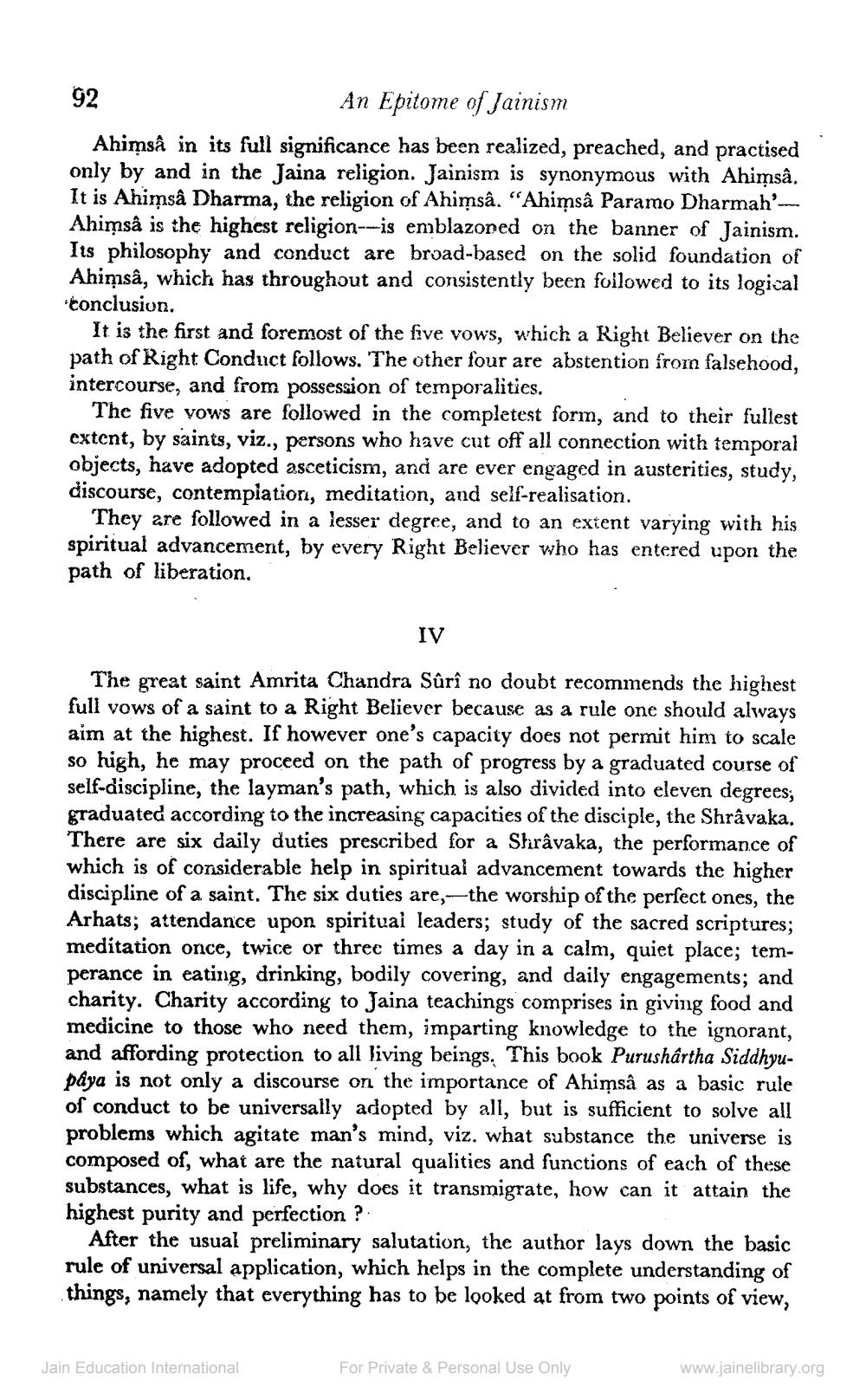________________
92
An Epitome of Jainism
Ahimsâ in its full significance has been realized, preached, and practised only by and in the Jaina religion. Jainism is synonymous with Ahimsâ. It is Ahimsâ Dharma, the religion of Ahimsâ. "Ahimsâ Paramo Dharmah'Ahimsâ is the highest religion--is emblazoned on the banner of Jainism. Its philosophy and conduct are broad-based on the solid foundation of Ahimsâ, which has throughout and consistently been followed to its logical 'conclusion.
It is the first and foremost of the five vows, which a Right Believer on the path of Right Conduct follows. The other four are abstention from falsehood, intercourse, and from possession of temporalities.
The five vows are followed in the completest form, and to their fullest extent, by saints, viz., persons who have cut off all connection with temporal objects, have adopted asceticism, and are ever engaged in austerities, study, discourse, contemplation, meditation, and self-realisation.
They are followed in a lesser degree, and to an extent varying with his spiritual advancement, by every Right Believer who has entered upon the path of liberation.
IV
The great saint Amrita Chandra Sûrî no doubt recommends the highest full vows of a saint to a Right Believer because as a rule one should always aim at the highest. If however one's capacity does not permit him to scale so high, he may proceed on the path of progress by a graduated course of self-discipline, the layman's path, which is also divided into eleven degrees, graduated according to the increasing capacities of the disciple, the Shrâvaka. There are six daily duties prescribed for a Shrâvaka, the performance of which is of considerable help in spiritual advancement towards the higher discipline of a saint. The six duties are,-the worship of the perfect ones, the Arhats; attendance upon spiritual leaders; study of the sacred scriptures; meditation once, twice or three times a day in a calm, quiet place; temperance in eating, drinking, bodily covering, and daily engagements; and charity. Charity according to Jaina teachings comprises in giving food and medicine to those who need them, imparting knowledge to the ignorant, and affording protection to all living beings. This book Purushârtha Siddhyupaya is not only a discourse on the importance of Ahimsâ as a basic rule of conduct to be universally adopted by all, but is sufficient to solve all problems which agitate man's mind, viz. what substance the universe is composed of, what are the natural qualities and functions of each of these substances, what is life, why does it transmigrate, how can it attain the highest purity and perfection?
After the usual preliminary salutation, the author lays down the basic rule of universal application, which helps in the complete understanding of things, namely that everything has to be looked at from two points of view,
Jain Education International
For Private & Personal Use Only
www.jainelibrary.org




